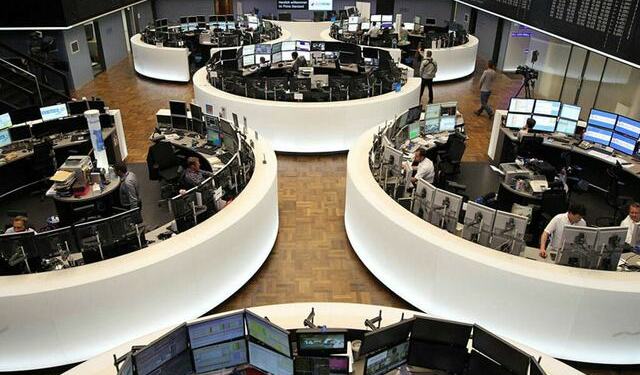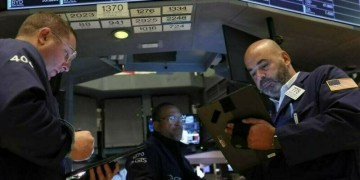London: Contemplating the cost of Britain’s EU divorce, London’s stock market lost ground Wednesday on a stronger pound and weaker oil prices, while Wall Street enjoyed further gains on better-than-expected US economic growth during the third quarter.
Bitcoin hogged the headlines after the virtual currency, which is not traded on world markets, smashed its way to historic peaks, racing past $11,000 a day after breaking $10,000 on a wave of feverish speculation as institutional investors looked to join the party.
London’s energy sector was hurt by slipping crude prices on the eve of a scheduled Vienna output meeting of OPEC, the oil producers’ cartel.
Lower oil prices bite into profits and revenues of energy companies such as BP and Shell, who limited day losses to around 1.0 percent.
On Wall Street, the Dow Jones index added 0.4 percent in early trading after the US Commerce Department published revised figures showing GDP rose an annualized 3.3 percent July-to-September, the strongest showing in three years, after an initial estimate of 3.0 percent growth.
“With borrowing costs still relatively low, confidence strong and capex (capital expenditure) intentions surveys at elevated levels, we expect another decent gain in the fourth quarter,” said Paul Ashworth of Capital Economics.
However, the tech-heavy NASDAQ lost ground, sliding 1.6 percent some two hours into the session.
The pound rallied on reports that Britain will pay up to 55 billion euros (49 billion pounds, $65 billion) as the price of its divorce from the European Union, putting pressure on British negotiators before key talks in Brussels.
“If this is correct then this would be a major step towards moving negotiations on to transition deals and a future trade agreement,” said Craig Erlam of forex company OANDA.
The sterling downside for Britain is that a stronger pound weighs heavily on the share prices of multinational companies, which tends to drag the FTSE lower.
The weaker euro briefly boosted eurozone markets, before Frankfurt and Paris well back.
“The main drag on the FTSE 100 is the oil and gas sector ahead of tomorrow’s OPEC meeting and today’s weakness in oil prices, along with the strong pound which is acting as an anchor around the legs of the FTSE,” CMC Markes analyst Michael Hewson told AFP.
Asia markets diverged Wednesday as investors brushed off early worries about North Korea’s latest missile test.
But caution prevailed, despite fresh records on Wall Street as Donald Trump’s tax-cut plans moved a step closer.
Source: Brecorder.com




























